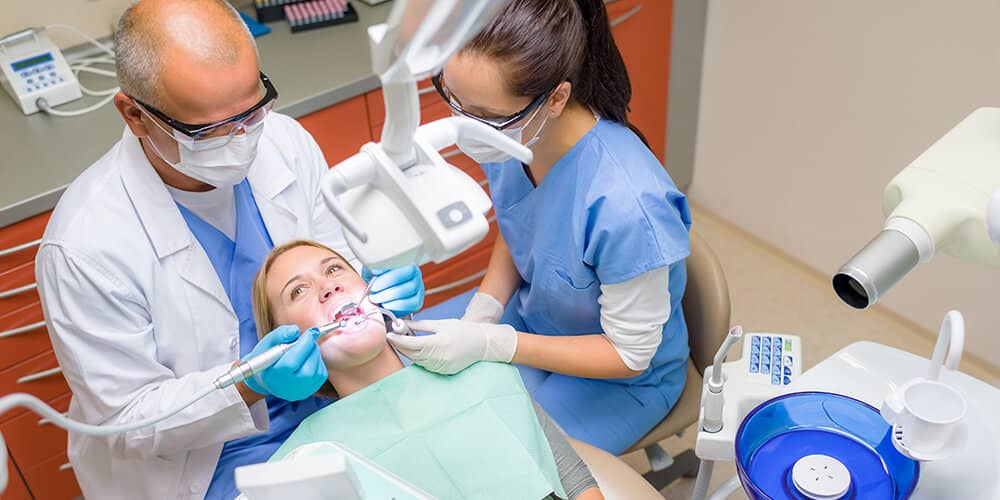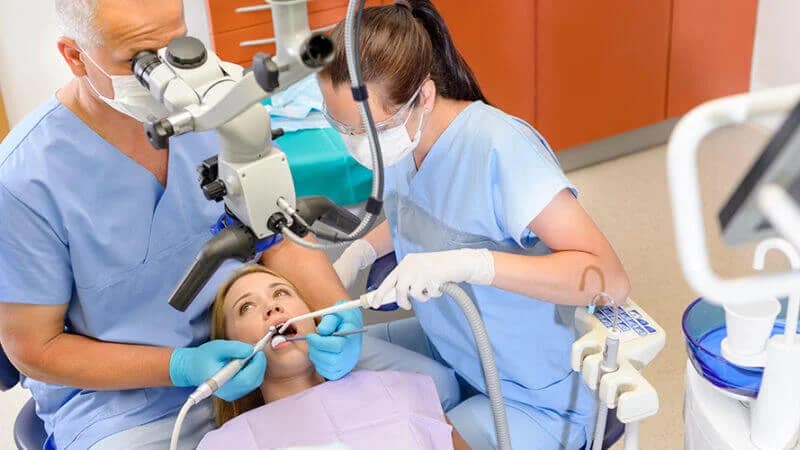Types of Dental Oral Surgery
Dental Implants – It is known to be one of the long-lasting teeth replacement options available in dental treatments. The implants are made of zirconia or titanium that are medically graded and are placed on the jawbone to replace the missing tooth roots.
Cleft Lip and Palate Repair – These disorders are seen in newborn babies that open in their upper lip and have an opening in the roof of their mouth. These conditions occur when there is no proper development of facial features in the fetal stage. A series of surgeries are performed by oral and maxillofacial surgeons to help in restoring normalcy in the babies eating n speech patterns.
Tooth Extraction – When there is no way to save the tooth from the damage the tooth extraction procedure is performed. The damage to the tooth may be due to complications in the wisdom tooth, gum diseases, tooth decay and any other dental trauma. Wisdom tooth extraction is considered a preventive measure by many dentists since retaining wisdom teeth may lead to cavity formations, loss of bone and other dental issues.
Periodontal Surgery – This surgery involves treating gum diseases. Some gum diseases severely affect the gums and they may need gum grafting. The tissue loss occurred due to the gum diseases being restored with the donor tissues. This procedure involves incision of gums and the gum tissues are moved away temporarily. The roots and the gums of the tooth are completely cleared from all the bacteria plaque formations and the gums are sutured into place again.
Dental Bone Graft – When there is tooth loss and the missing tooth is not restored for a long time, the bone begins to deteriorate since the roots are not present. The dental bone graft procedure is done to restore the density of the jawbone that is capable of supporting the teeth’ structure again.
Corrective Jaw Surgery – The skeletal abnormalities in the facial area and especially the jaw area is corrected in this surgery. This procedure aims to restore the chewing ability, correct the misalignment issues and reduce the pain and discomfort caused by TMJ disorder.
Recovery of Oral Surgery
The recovery period for oral surgery varies from one to another since different techniques and dental pieces of equipment are used for different types of oral surgeries. The recovery time is very minimal for extractions whereas it takes months to recover from other oral surgeries that involve many procedures to achieve the desired results.
The other factors that play a major role in the recovery process are general health before surgery, post-op care and avoiding smoking habits. The dietary practices recommended by dentists have to be strictly followed since the food habits should not hinder the healing process.
A regular oral hygiene routine such as brushing and rinsing is very important for any dental recovery process.
Some of the oral surgical procedures may affect speech ability. Few effect temporarily and few affect permanently. Some oral surgeries affect the nervous system but they heal themselves within a limited period. The surgical scars also take a long time and constant care to leave lesser visible scars. Rushing the healing period will only create more damage hence it is important to follow the instructions given by your surgeon for a hassle-free healing process.
Complications of Oral Surgery
There are some complications of oral surgery that can be noticed and can also be cured with proper treatments:
Infection – If there are any health issues before the surgery there are chances that infectious symptoms may show up such as abnormal swelling, pus formations and a bad taste in the mouth that is prolonged can show up. Antibiotics will be prescribed by the dental surgeon to evade the infection symptoms.
Numbness – The nerves in the surgical area are irritated during the surgical procedures and they temporarily lose some sensations in the neural area that creates numbness. The numbness subsides in 24 hours or even lesser than that and the areas that may feel numb are the tongue, lips, cheeks, teeth and chin.
Jaw Fracture – This can occur during the removal of a wisdom tooth if the jawbone is already delicate.
Injury – Though extreme care is taken not to harm the adjacent teeth sometimes during the surgical procedure, there can be minor injuries to them and they heal over time.
Sinus Complications – Sinus cavities are located in front of the forehead and the lower part of the sinuses is located near the upper tooth roots. During the dental surgical procedure, the tooth roots may probe into sinus cavities.
Dry Socket – On completion of tooth extraction, a clot naturally develops in the extracted area. The clot protects the tooth nerves and surrounding tissues until they dissolve naturally in 7- 10 days. A dry socket is a situation in which the clot dislodges within that period exposing the nerves to vulnerability and it may also slow the healing process.



